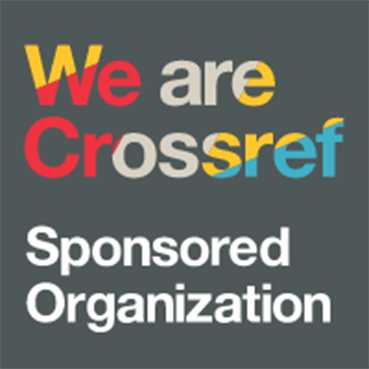Islam vs Liberalisme: Konstruk Pemikiran Binder dan Kurzman
DOI:
https://doi.org/10.47766/almabhats.v7i1.1017Keywords:
Charles Kurzman, Islam, Leonard Binder, LiberalismAbstract
Abstract: This research examines, compares, and identifies the conceptual distinctions between Binder and Kurzman's perspectives on Islamic Liberalism. The study employs a qualitative methodology and library approaches. Data were retrieved from fifty sources and then analyzed. The study's findings indicate significant distinctions between Binder's and Kurzman's modes of thought. Through talks with some western-educated Islamic philosophers, liberalism is shown to be more binding than the ideology itself. Western liberalism and the interaction between these teachings and Islamic aspects, in the context of a dialogue process between Islamic liberalism and Western liberalism, so that the two might share resources. Meanwhile, Kurzman's study of the Islamic setting will be conflict- and blessing-free.
Abstrak: Penelitian bertujuan untuk menganalisis, mengkomparasi dan menemukan konstruk perbedaan pemikiran Binder dan Kurzman terkait Islam Liberal. Penelitian menggunakan paradigma kualitatif dengan teknik kepustakaan. Data diambil dari 50 rujukan, selanjutnya dianalisis secara komparatif. Hasil penelitian menunjukkan perbedaan esensial antara paradigma pemikiran Binder berbeda dengan Kurzman. Binder lebih menekankan pada konsep liberalisme melalui metode diskusi dengan beberapa pemikir Islam berasal dari barat. Liberalisme barat dan hubungan ajaran tersebut dengan elemen-elemen Islam dengan pemikiran inti adanya proses dialog antara liberalisme Islam dengan liberalisme Barat sehingga terjadi adanya take and give di antara keduanya. Sedangkan kajian Kruzman mengedepankan konteks keislamannya agar terbebas dari pertikaian dan pertentangan.
References
Adib-Moghaddam, A. (2016). Islamic Secularism and the Question of Freedom in Iran. Middle East Critique, 25(1), 71–82. https://doi.org/10.1080/19436149.2015.1101873
Barnett, M. N. (1998). Dialogues in Arab Politics: Negotiations in Regional Order. Columbia University Press.
Bashori, A. (2020). Filsafat Hukum Islam: Paradigma Filosofis Mengais Kebeningan Hukum Tuhan. Prenada Media.
Binder, L. (1961). Religion and Politics in Pakistan. In Religion and Politics in Pakistan. University of California Press.
Binder, L. (1986). The Natural History of Development Theory. Comparative Studies in Society and History, 28(1), 3–33.
Binder, L. (1988). Islamic Liberalism: A Critique of Development Ideologies. University of Chicago Press.
Binder, L. (1998). Exceptionalism and Authenticity: the Question of Islam and Democracy. The Arab Studies Journal, 6(1), 33–59.
Chaplin, C. (2017). Book Review: Islam and Democracy in Indonesia: Tolerance Without Liberalism. South East Asia Research, 25(3), 320–322. https://doi.org/10.1177/0967828X17725847
Dallal, A. (1993). The Origins and Objectives of Islamic Revivalist Thought, 1750-1850. Journal of the American Oriental Society, 113(3), 341. https://doi.org/10.2307/605385
Danial, D., Dewi, N. S., & Kafrawi, K. (2021). The Development Model of Human Resources at Islamic Universities in Aceh. Jurnal Ilmiah Peuradeun, 9(1), 103. https://doi.org/10.26811/peuradeun.v9i1.450
Dorraj, M. (1990). Islamic Liberalism: A Critique of Development Ideologies. Leonard Binder. The Journal of Politics, 52(1), 328–330. https://doi.org/10.2307/2131454
Filali-Ansary, A. (2003). The Sources of Enlightened Muslim Thought. Journal of Democracy, 14(2), 19–33. https://doi.org/10.1353/jod.2003.0031
Fogg, K. W. (2015). Contemporary Developments in Indonesian Islam: Explaining the “Conservative Turn” Edited by MARTIN VAN BRUINESSEN. Journal of Islamic Studies, 26(1), 93–95. https://doi.org/10.1093/jis/etu061
Gellner, E. (1983). Muslim Society (Issue 32). Cambridge University Press.
Gül, S. S., & Gül, H. (2000). The Question of Women in Islamic Revivalism in Turkey: A Review of the Islamic Press. Current Sociology, 48(2), 1–26. https://doi.org/10.1177/0011392100048002002
Hamdi, M. E. (1996). Islam and Liberal Democracy: The Limits of the Western Model. Journal of Democracy, 7(2), 81–85.
Hart, G. (2020). “The Missing Martyrs: Why are there so Few Muslim Terrorists?” (2nd ed). Critical Studies on Terrorism, 13(3), 509–510. https://doi.org/10.1080/17539153.2020.1783759
Husaini, A., & Hidayat, N. (2002). Islam Liberal: Sejarah, Konsepsi, Penyimpangan, dan Jawabannya. Gema Insani.
Islam, M. N., & Saidul Islam, M. (2018). Politics and Islamic Revivalism in Bangladesh: The Role of the State and Non-State/Non-Political Actors. Politics, Religion & Ideology, 19(3), 326–353. https://doi.org/10.1080/21567689.2018.1493382
Kasdi, A. (2017). Fiqih Wakaf: Dari Wakaf Klasik Hingga Wakaf Produktif. Idea Press Yogyakarta.
Kurzman, C. (1998). Liberal Islam: A Sourcebook. Oxford University Press.
Kurzman, C. (1999). Liberal Islam: Prospects and Challenges. Middle East Review of International Affairs, 3(3), 11–19.
Kurzman, C. (2002). Modernist Islam, 1840-1940: A Sourcebook. Oxford University Press, USA.
Kurzman, C. (2004). Social Movement theory and Islamic Studies. Islamic Activism: A Social Movement Theory Approach, 289–303.
Mahdani, Y. (2014). Pemikiran Islam Liberal tentang Tindak Pidana Murtad (Riddah). UIN Syarif Hidayatullah Jakarta: Fakultas Syariah dan Hukum, 2008.
Mohiuddin, A. (2018). Book Review: Southeast Asian Muslims in the Era of Globalization. Journal of Current Southeast Asian Affairs, 37(3), 203–206. https://doi.org/10.1177/186810341803700311
Moosa, E. (2005). The Islamic Roots of Democratic Pluralism. The Journal of Religion, 85(1), 172–174. https://doi.org/10.1086/428553
Parens, J. (1994). Whose Liberalism? Which Islam? Leonard Binder’s “Islamic Liberalism.” PS: Political Science and Politics, 27(3), 514. https://doi.org/10.2307/420216
Permana, A. (2017). Analisis fatwa MUI tentang Pluralisme, Liberalism dan Sekularisme Agama. Fakultas Syariah dan Hukum UIN Syarif Hidayatullah Jakarta.
Qasemy, M. A. Q. (1998). Shah Waliullahs Contributions towards Islamic Revivalism in India. Kuala Lumpur: International Islamic University Malaysia, 1998.
Rachman, B. M. (2010). Sekularisme, Liberalisme, dan Pluralisme: Islam Progresif dan Perkembangan Diskursusnya. Jakarta: Gramedia.
Rahman, F. (1956). The Thinker of Crisis: Shah Waliy-Ullah. Pakistan Quarterly, 6(2), 44–48.
Stauth, G. (1993). Leonard Binder and the Hermeneutic of Authenticity-Critical Note. Arabica, 40(1), 62–83.
Suprayogo, I. (2012). Membangun Peradaban dari Pojok Tradisi. UIN-Maliki Press.
Swaine, L. (2018). Can Islam Transform Liberalism? Politics, Religion & Ideology, 19(3), 285–304. https://doi.org/10.1080/21567689.2018.1510391
Uddin, M. H., Hasan, M. M., & Uddin, A. (2022). Liberal Islam: A Historical Appraisal.
Willis, M. (1999). The Islamist Challenge in Algeria: a Political History. NYU Press.
Zarkasyi, H. F. (2012). Liberalism, Liberalization and Their Impacts of Muslim Education (Special Case of Indonesian Intellectuals). TSAQAFAH, 8(1), 183–210.
Downloads
Published
How to Cite
Issue
Section
License
Copyright (c) 2022 Al Mabhats : Jurnal Penelitian Sosial Agama

This work is licensed under a Creative Commons Attribution-ShareAlike 4.0 International License.






